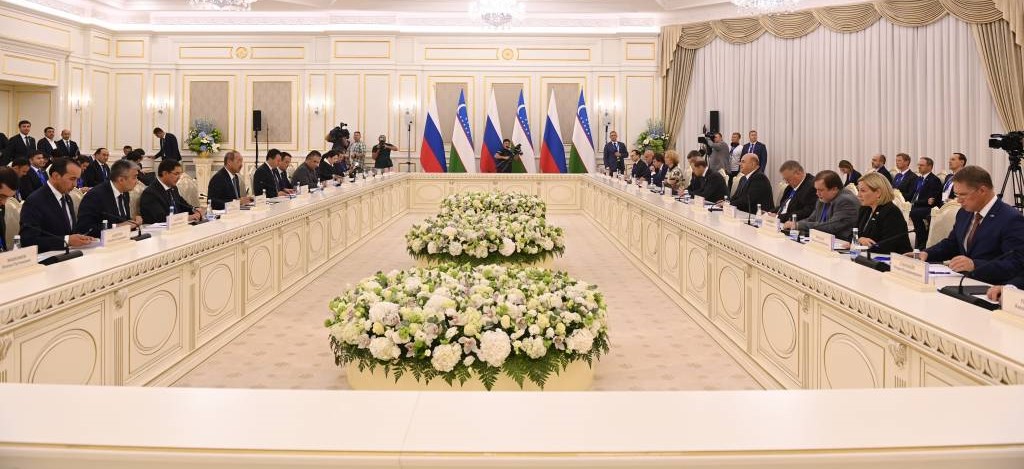WNAM REPORT: On September 9, Tashkent hosted the 5th meeting of the Joint Commission at the level of the heads of government of the Republic of Uzbekistan and the Russian Federation.
At the meeting, the Prime Minister of the Republic of Uzbekistan Abdulla Aripov and the Prime Minister of the Russian Federation Mikhail Mishustin discussed the current state and prospects of strategic partnership and cooperation between the two countries.
At the meeting, it was noted that thanks to the far-sighted political will of the leaders of the two states, relations between the two countries are reaching an entirely new level.
In May this year, at the invitation of the President of the Republic of Uzbekistan Shavkat Mirziyoyev, the President of the Russian Federation Vladimir Putin paid a state visit to Uzbekistan. Several joint events were held during the visit.
The volume of trade between Uzbekistan and Russia has increased 2.5 times over the past seven years, and it has increased 30 percent over the past seven months this year.
At the meeting, it was noted that the leaders of the two countries have set their governments the task of increasing the volume of mutual trade to $30 billion in the coming years. To achieve this, cooperation projects and specific joint measures to replace imports are necessary.
Today, more than three thousand joint ventures operate in Uzbekistan together with Russia. In turn, many economic entities with the participation of Uzbekistan capital operate in Russia.
Cooperation projects have been launched in metallurgy, energy, chemical, and textile industries, agriculture, digitalization, artificial intelligence, and other areas.
Transport and transit are important areas of mutual cooperation. The number of direct flights between the two countries has reached almost 300 per week, and passenger rail service has been fully restored.
At the same time, cultural and humanitarian cooperation has reached a qualitatively new level. Relations in culture, art, tourism, science, and sports are developing at an accelerated pace. Permanent and effective cooperation has been established between leading higher education and medical institutions. Fourteen branches of leading Russian universities are successfully operating in Uzbekistan.
Plans to ensure the implementation of promising investment projects and trade agreements, and strengthen cultural and humanitarian cooperation were discussed at the meeting.
Specific measures for consistently implementing the agreements reached were also discussed, and further areas of cooperation were agreed upon.
Several documents were signed after the meeting to develop cooperation.


